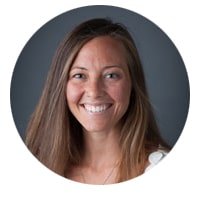Suad Yusuf Ibrahim is a Nutrition Coordinator in West Darfur, Sudan, working with internally displaced people *(IDP) in an IDP camp. When a humanitarian crisis erupted in the great Darfur region in 2004, World Relief Sudan responded to the immediate and long-term needs of vulnerable IDPs and hosting communities. Suad joined the work just a few years later.
With commitment, expertise and passion, Suad helps to implement relief programs in the areas of health and nutrition where severe gaps in the health system exist. Suad took a few moments to share more about her work caring for those in the most vulnerable situations and what positive changes she is seeing in her country. Sit down, grab some tea and meet an incredible woman making an impact in West Darfur.
What is your role at World Relief, and how long have you worked here?
I serve World Relief in the capacity of Nutrition Coordinator for West Darfur State (Sudan), and I have served World Relief in West Darfur for 12.5 years.
Tell us more about your role as Nutrition Coordinator — what do you do and what do you like about your job?
I like my job because it entails attending to the needs of the most vulnerable people in rural settings, particularly children and women. I have witnessed many children and women who would have died due to undernutrition, but they survived because of the life-saving nutrition interventions that World Relief is providing. One thing I really enjoy with my work is seeing children transition from life-threatening severe and moderate acute malnutrition to full recovery.
What improvements have you seen as a result of World Relief’s work in your area?
A few years ago (almost a decade), there was no education, especially for girls and women. Girls were not offered opportunities to go to school. They could only engage in farming, nomadic pastoralism and early marriages. People were very resistant to change in this area. But today, children are going to school and most girls are now graduating and taking up high-level jobs. Most families now want children, particularly girls to go to school.
Another change I’ve seen is the way different community groups interact with each other. Before, the community was very rigid and closed. For example members from other communities including those from the capital, Khartoum, were not allowed to intermingle with community members in West Darfur. Thankfully, this has changed over the years and many people from other communities are now working here in West Darfur. The community is now more cosmopolitan as compared to the way it was a few years back.
What other changes do you hope to see happen in the community in the coming years?
I foresee a situation whereby the nutrition situation will improve. Already, there has been a noteworthy change in the number of women who are taking nutritional supplements. Likewise, community members are now engaging more and more in farming, which is an effective approach to preventing malnutrition.
The causes of malnutrition are multi-faceted and there is more we need to do. Generally, though, the malnutrition situation is showing positive trends. For instance, in the past, if a household had five children, at least two or three would be enrolled in the feeding program. This number has improved over the years, and many families now do not have malnourished children.
When you are not working, what else do you like to do?
Mostly I take care of domestic issues. I am a mother of 4 children so I spend most of my time after work taking care of them.
If someone were coming to visit you from another country, what are the top things you would take them to see?
I would take them to see the traditional dressing for women and men, and I’d want them to see the farmland during the rainy season, particularly in the Jebel area.
*Internally displaced persons are women, men, children, entire families, who have fled their homes and traveled to another region within their country. An IDP camp is where these displaced people have temporarily settled until it is safe for them to return home. Many of these people have fled because of violence in their home village. World Relief provides services within these IDP camps to sustain a basic quality of life for residents.

Dana North serves as the Marketing Manager at World Relief. With a background in graphic design and advertising and experiences in community development and transformation, Dana seeks to use the power of words and action to help create a better world. Dana is especially passionate about seeking justice for women and girls around the world.


